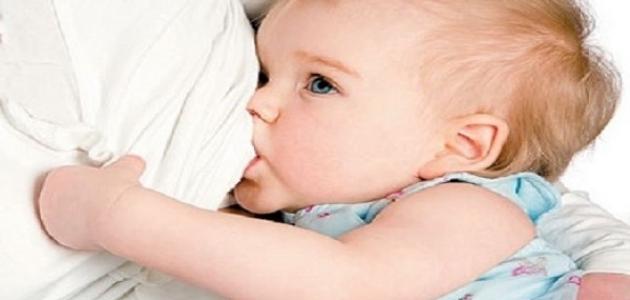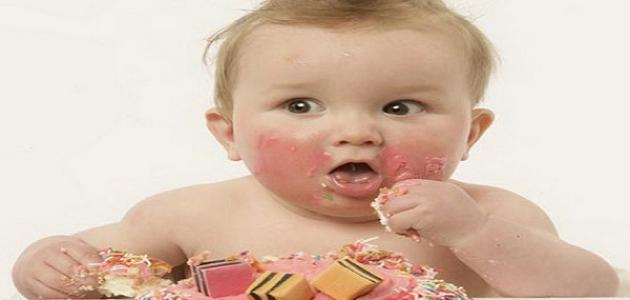Contents
Methods for maintaining breastfeeding
- Mother's nutrition: As a good mother's nutrition would improve and increase breastfeeding. [1]
- Relaxation: Find a quiet place to relax, massage the breast, or use warm compresses to get milk. This is because stress hinders the breast milk production process. [2]
- Drinking fluids: Drink more fluids. To maintain body moisture, and reduce caffeinated drinks, such as coffee, so that this does not affect the child's sleep. [3]
- Avoid smoking: as smoking reduces the secretions of milk and changes its taste, and it is worth noting that smoking increases the risk of sudden infant death syndrome and increases the incidence of respiratory diseases. [3]
Feeding advice for nursing mothers
The nutritional requirements for breastfeeding are the same as those related to pregnancy, and women should continue to eat similarly to how they eat during pregnancy, yet a breastfeeding woman needs 200 extra calories per day than she did during pregnancy, and it is important that she get the calories Of nutritious foods, when breastfeeding women usually lose 0.4 to 1.8 kg without restricting calories, and the diet of a pregnant woman should contain: [1]
Protein
Breastfeeding women should eat 2-3 servings of protein each day, which equate to 84 to 112 grams of meat, fish, or poultry, and good sources of protein are: meat, poultry, seafood, eggs, cheese, and milk. , Yogurt, cheese, tofu, and dried beans, and the Food and Drug Administration recommends that breastfeeding mothers not eat shark, swordfish, mackerel, or tilapia; This is due to the high mercury content.
Calcium
The suggested daily amount of calcium for breastfeeding mothers is 1,300 milligrams per day. Examples of foods rich in calcium include milk, yogurt, cheese, and orange juice.
Iron
Iron is a very important element for breastfeeding mothers. Women from the age of 18 years or younger should get 10 milligrams of iron per day, and for those over 19 years old, the suggested daily amount is 9 milligrams, and good sources of iron include the following: Meat, Poultry, seafood, dried beans, dried fruits, and egg yolks.
Vitamins and minerals
Breastfeeding mothers need to take vitamins daily, and pregnant women can continue to take the same prenatal vitamins or mineral supplements, however attention must be paid; Because nutritional supplements contain more iron than is required for breastfeeding.
Vitamin C
Breastfeeding mothers need a little more vitamin C than they were getting during pregnancy. If a woman is 18 years of age or younger, she should get 115 milligrams of vitamin C per day, while those over the age of 19 need They get 120 milligrams a day, and good sources of vitamin C include: citrus fruits, broccoli, cantaloupe, potatoes, sweet peppers, tomatoes, kiwi, cauliflower, and cabbage.
Liquids
You should drink at least 8 cups of water daily while breastfeeding, in addition to drinking other good fluids such as natural juice, milk, broth, tea and soup.
Food and drinks to avoid while breastfeeding
Limit most seafood, such as eating shark, swordfish, mackerel, or tilefish. Because of the high mercury content in it, and the child's exposure to excessive amounts of mercury through breast milk, it may pose a risk to the development of the nervous system, and they must limit the consumption of drinks that contain caffeine; Caffeine in breast milk may increase the movement of the baby, and avoid sleep, so you should avoid drinking more than 2 to 3 cups, and avoid drinking alcohol, smoking cigarettes, and drugs not approved by her health care provider. [4]
References
- ^ A b "Nutrition Tips For Breastfeeding Mothers" , Www.ucsfbenioffchildrens.org , Retrieved 25-10-2017. Edited.
- ↑ Mayo Clinic Staff (4-8-2015), “Breast-feeding and pumping: 7 tips for success , ” www.mayoclinic.org , Retrieved 11-11-2017. Edited.
- ^ A b Mayoclinic Staff (8-4-2015), " the Healthy Lifestyle Lifestyle Infant And Toddler : health" , Www.mayoclinic.org , Retrieved 11-11-2017. Edited.
- ↑ "Infant and toddler health" , www.mayoclinic.org , Retrieved 25-10-2017. Edited.














